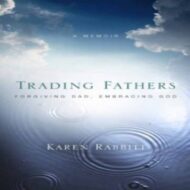“Through an oral interpretation class, I’d gotten involved in the junior college performing arts community….In a reader’s theatre performance that spring, I read a solo piece of a young woman waiting for a telephone call. For fifteen minutes, I begged, cajoled, and threatened destruction to that black instrument to try to make it ring. No one needed to coach me. I’d been waiting for a telephone to ring since I was four years old. Someone who would call for me. Someone who would rescue me from my loneliness and fear.” Pg. 50
A Sanctuary
“The years from eight to twelve passed in a blur. Like most children of trauma, I remember little, either bad or good. I know I went to Catholic mass every Sunday morning. Though it would be years before I really understood God’s fatherhood, the little steepled church was a genuine sanctuary. Catholics know the value of using all our senses in worship.
Recently, Jerry and I walked into a Greek Orthodox church for an open house, and the smell of the incense transported me to those early Catholic days of mystery and majesty. Father Wright would walk down the aisle toward the altar, swinging the smoking censer of fragrant incense on special holy days. The arched stained glass windows glowed, the choir behind us in the loft sang the great hymns of the faith, and, for an hour on Sunday mornings, I felt clean.” Pg. 36
Emotional Wilderness
In my family, I got little attention from my parents unless I was bleeding or broken. If I cried, “I’ll give you something to cry about” was a common admonition used to shut me up. In that emotional wilderness, my tears dried up, leaving a salty residue. At the time, I couldn’t have said how thirsty I was for someone, anyone, to hold me and say, “I understand how you feel. Your sadness and anger make sense.” Looking back, putting words to feelings, I know I believed that if my mother didn’t take my pain seriously, who would? A companion question to “If my father can’t be trusted, who can?” Pg. 35
